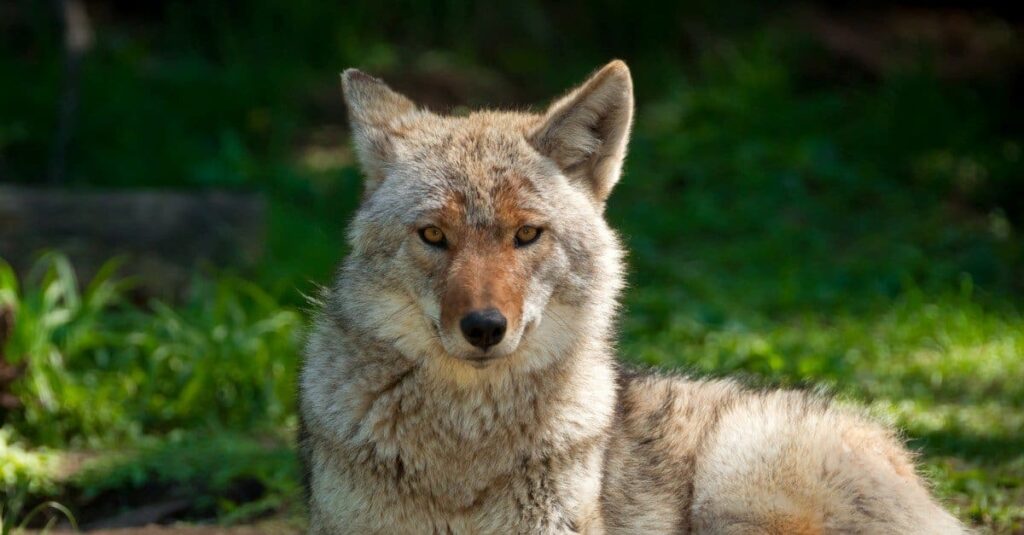Unlike their relatives, wolves, coyotes typically do not hunt in packs. However, they do live in family units, known as packs, similar to wolves. While they commonly hunt alone or in pairs, they have been known to work together in certain circumstances, especially when taking down larger prey such as deer. They are intelligent animals and will adapt their hunting strategies as needed.

WHERE DO THEY SLEEP?
They typically sleep in dens during the pup season, but they do not have a permanent den like wolves. The mother coyote will find temporary dens such as hollowed-out fallen trees or burrows to keep the pups safe. These dens may be relocated to different locations to ensure the safety of the pups.
Outside of the pup season, they generally live and sleep above ground without a designated den.
ARE THEY NOCTURNAL?
They are primarily crepuscular, which means they are most active during twilight hours, which include dawn and dusk. They are also known to be more active at night, making them partially nocturnal. However, they can be seen during the daytime as well, so it would be more accurate to describe them as primarily crepuscular with some nocturnal activity
DO THEY HUNT DURING THE DAY?
They have a flexible hunting behavior and can hunt during both the day and night. While they are more commonly active during the evening and night, they are opportunistic hunters and will seize hunting opportunities whenever they arise, regardless of the time of day. Therefore, it is accurate to say that they may hunt during the day if there are suitable conditions and prey available.
URBAN COYOTES
With the increasing population of coyotes, there is a growing phenomenon of coyotes venturing into urban areas, leading to the term “urban coyotes.” While coyotes in the wild can have a lifespan of up to 15 years, the majority of urban coyotes do not survive beyond 3 years. Unfortunately, one of the main causes of mortality for coyotes in urban environments is vehicle collisions.






